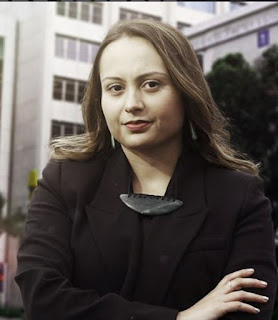 |
| Isobel Prasad |
Fifty-three years ago I wrote in More and More Maoris, in maps and diagrams, a simple statistical survey of the Maori today. (Whitcombe and Tombs. 1971):
"There are many definitions of Māori. Pakeha commentators often seem obsessed with the proportion of Māori ancestry in a person's biological make-up; others talk of people being 'biologically Māori' and 'culturally Māori'; others would have us forget Māori altogether and be content with the all-embracing title of Nāew Zealanders. Similarly, there is no common agreement — and much discussion —on the meaning of Māoritanga, the Māori way of life, Māori identity, Māoriness, Māori group similarly. It may be important for legal or scholarly purposes to attempt a defintion of these terms, but for everyday purposesit is sufficient to say that a Māori us a person who considers himself Māori and is so recognized and accepted by others, while Māoritanga is what Māori do and feel to be Maori which is not commonly shared by non-Māori."
Today, I would change this a little to read "A Māori is a person who considers him- or herself Māori and is so regarded by other Maōri. Who is and who is not a Maōri is Māori business. For non-Māori to attempt definitions of Māori is insulting. How would other New Zealanders feel is someone defined them?"
Read about how Isobel Prasad felt when someone tried to define her identity.
The other type of 'special treatment for Māori' everyone forgets
When a hospital worker told Isobel Prasad she was only a teeny bit Māori, she was reminded of the other kind of ‘special treatment’ dished out to her people in the health system. Click here to read on.
Note: The question may arise: can a person have more than one identity? Of course. We all have more than one identity in the different spaces that fill our lives. Isobel can be Maōri or Indian or Indo-Fijian, a hospital worker or a daughter as she sees fit.
-- ACW

